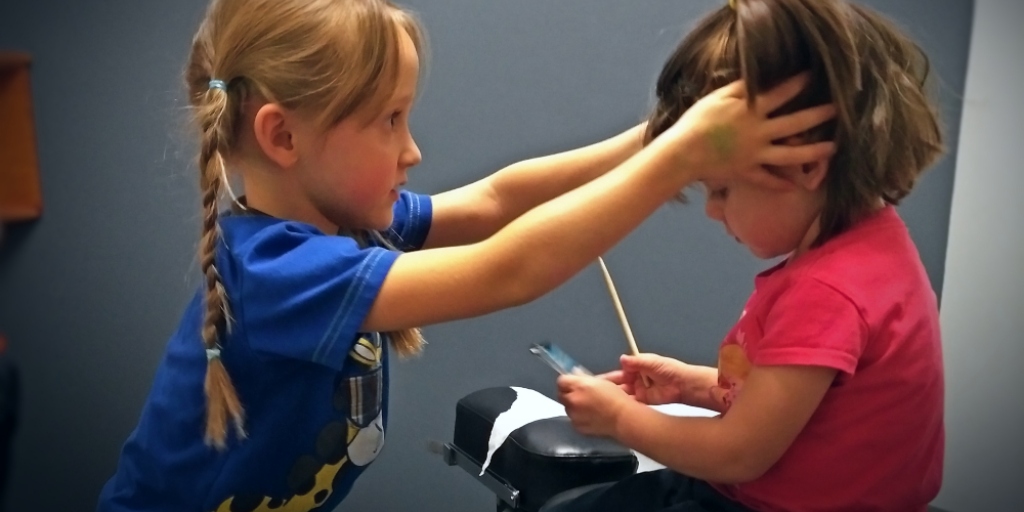
Jane Korvemaker shares insights into the similarities between physical therapy and the work of the Holy Spirit on our souls.
It all started with a bulging disc in my lower back several years ago. I experienced crippling pain daily, culminating in barely being able to move an inch without great pain. It was at the recommendation of a friend to try physiotherapy. I’m happy to say I’ve come a long way since this introduction. From my years of sessions, I’ve gained two big insights into my spiritual life:
- It really hurts when working through tight muscles, but the more that I resist entering into the moderate pain and embracing it as a temporary measure, the longer my journey toward healing will take.
- I may know what action triggered a specific pattern of muscle dysfunction, but this information may or may not contribute to how my physiotherapist can help me get better. And sometimes, this information is unknowable.
Tightness and Lack of the Breath of God
The first was the easier connection to make. At some point I was taught how to breathe into the muscles being worked: breath can relax muscles and can help the physiotherapist to more easily loosen them. When it’s rather painful, I catch myself holding my breath against the pain instead of breathing deeply, my body tightening its muscles as if it’s getting ready to wrestle an opponent.
This reminds me of two instances in the Gospels: when Jesus was in his hometown and he could not work any deeds of power there because of their unbelief (Mark 6:5), and also Jesus saying, “whoever blasphemes against the Holy Spirit can never have forgiveness, but is guilty of an eternal sin” (Mark 3:29; see also Matthew 12:31-32 & Luke 12:10). This second one can be understood in light of the first—if we refuse to believe the Spirit is present and working, no deeds of God’s power can be done, including forgiveness.
In my physiotherapy, I have come to reflect allegorically on my own breath as being like the work of the Holy Spirit. Am I allowing my breath to soften and loosen those rigid muscles? In my own life, am I allowing the Holy Spirit to breathe into me and undo the knots of my own life? To let the Spirit into those inflexible and unyielding areas that need to be released from bondage? I want healing! I need to learn to lean into the temporary pain of becoming released so as to be free for God.

God Works With and Without Knowing Causes
The second insight is that sometimes I might know what has led to these muscles functioning in a broken way, but it’s not always possible to know. Just as Jesus’ disciples wanted to know the cause of blindness for the man born blind, whether it was from his parents or himself, Jesus responded, “Neither this man nor his parents sinned; he was born blind so that God’s works might be revealed in him” (John 9:3). In physiotherapy, knowing the cause can help isolate a target area of dysfunctional muscles, and help in terms of prevention, but it is often not necessary in terms of treatment. One way or another, the physiotherapist will evaluate the muscles and based on what she sees, she starts treatment from there.
It’s similar to what Jesus is speaking about: why did this bad thing (blindness) happen to this person? Who caused it? Jesus’ response is that it doesn’t matter; it doesn’t determine God’s ability to heal the broken. Whether our brokenness is due to consequences of our own actions (from which we can learn), or if there is some unknown cause of our brokenness, what Jesus requires of us is to allow him to breathe his Spirit into us.

The Paschal Mystery
On Good Friday we will recall Jesus’ crucifixion. Nailed to a cross, broken in body and on display for all, He could have blamed the Romans or the Jewish leaders; He could have braced Himself against the pains surely rolling through his limbs. Instead, he cried out with his breath, “My God, my God, why have you forsaken me?” (Mark 15:34). Yet though this psalm (22) starts with a cry of despair, doesn’t end there. Ultimately, it speaks of trust and hope in the Lord.
Then, Jesus breathes His last in that trust and hope, having leaned into the temporary pain in order to bring healing to all creation.
He allowed the Holy Spirit to permeate His life; in death, that same Spirit kept working. That work became the fullness of redemption, the fullness of healing, in Christ’s resurrection.
May we also trust and believe that the Breath of God can help us overcome whatever knots we have so as to allow Christ’s resurrection to permeate our lives, now and forever.

Copyright 2023 Jane Korvemaker
Images: (top) copyright 2023 Jane Korvemaker, all rights reserved; Canva
About the Author

Jane Korvemaker
Jane Korvemaker loves food, family, wine, and God (perhaps not in that order). She holds a Certificate in Culinary Arts, which pairs perfectly with her Bachelor in Theology. A former Coordinator of Youth Ministry, she writes from the beautiful and cold province of Saskatchewan, Canada. She works from home and takes care of her three very hard-working children. Jane regularly blogs at AJK2.ca.


.png?width=1806&height=731&name=CatholicMom_hcfm_logo1_pos_871c_2728c%20(002).png)
Comments